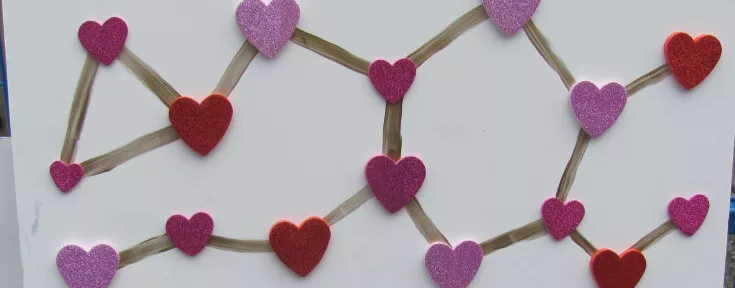Or: How to make your coed polyamory group welcoming to lesbians.
This is a guest post by Sophia, a friend on mine who has organized poly groups and events, especially for women and LGBTQ folks, in the Vancouver area. This post arose out of some thoughts she shared with me, which I wanted to signal boost because they represent a perspective and experience that we feel doesn’t get a lot of airtime in our communities or our literature.
I’ve been a lesbian my whole life and a polyamorous lesbian for the last five years. The city where I live has a fairly active polyamorous community, with discussion groups and social events. The most active of these are the ones that welcome all genders. I love sex-positive people: We talk freely and mostly without shame about sexuality and relationships. We can be frank and fun people. Experienced and successful poly people often have great communication skills. I have not met with a lot of overt homophobia in polyamorous social environments, probably because about 80% of the women are bisexual. Many of the men are lovely and profeminist as well, and I have some good male friends among them.
However, environments that welcome people outside the norm also often attract people who transgress social boundaries in ways that harm other people. Tolerating poor behaviour from these individuals will, over time, drive away the people you want in your groups.

Here are some things not to say to a poly lesbian. Most of them should seem obvious, but all of them are real examples. Many of them also apply to other queer women as well.
1. “I slept with a lesbian…”
If you are a man, never, ever tell your lesbian friend or acquaintance about the “lesbian” you slept with. The polite way to treat a lesbian is “off limits to you or any man” sexually. Like a nun. Or your sister. Or your best friend’s monogamous wife. Or your straight best male friend. None of these people want to hear about you having sex with someone just like them. It’s saying “your stated boundary that you are not into men doesn’t matter because this other woman said she didn’t want sex with men but had sex with me anyhow.” Accept that not all women are sexually available to men, and move on. If someone tells you she’s a lesbian, by using that word, she is clearly communicating that she does not consent to receive sexual attention from men. Respect that. Do not be hopeful that this particular lesbian will sleep with you just because another woman did. It’s more than just rude and creepy—it’s a consent violation.
2. “You and your girlfriend are so hot. I’ve been having fantasies about you.”
A man actually said this to me yesterday. No lesbian (and very few queer women, period) ever wants to hear this. Similarly, do not ask to watch. There are no words to express how deeply creepy this is.
3. “Will you date me and my husband/wife? We had a threesome with a lesbian once…”
Don’t ask a lesbian out on a date that involves a man. Don’t even suggest it, hint you are available for a threesome or anything of the sort. Even if she’s friendly. She’s just being polite and assumes you know what the word lesbian means and that you have the class to respect her boundaries. Have that class. (This applies equally to online dating.)
4. “Your girlfriend looks like a man, so why don’t you sleep with men?”
Butch women are women. Lesbians are into women. That’s the point.
5. “I know what toys you girls like…”
Don’t start talking about dildos or strapons. Just. Don’t. It’s none of your business. Again, lesbians are into women. Anything done between women is not about men.
6. “I just thought you might not have had the opportunity to sleep with a man…”
This is laughable. Most women, lesbians included, have to refuse advances from men on a regular basis.
7. “Oh, you’re a lesbian. I could never be a lesbian, I like cock so much. Let me tell you all about what I like to do with men…”
I get it, you need everyone to know you’re not gay. I’m not going to hit on you. And frankly, details about sex with men gross me and a lot of other lesbians out. Like most lesbians, I’ve had sex with men before I came out. I know how it works. It’s not a topic of interest or appeal to me. It’s like forcing a vegan to listen to all the things you like about meat.

Obviously, these are things that are rude and inappropriate to say to any lesbian in any setting. But the frankness about sexuality and relationships in poly and kink communities specifically can give people a false sense of permission to be intrusive or to fetishize sexual minorities, and that’s not okay. Lesbians who run into this kind of behaviour in poly communities may choose to stay within queer communities, or to segregate themselves from bi and straight people to avoid these types of unpleasant situations—which I think is a loss of community and possibilities for understanding and connection on both sides.
Let’s be good to one another. Sex-positive communities should be all about respecting stated boundaries and consent. The word lesbian has a very clear, widely understood meaning. I would like to see our poly communities be places where people take that meaning and use common sense to tell us how to behave to other human beings whose boundaries we recognize and respect.
Additional resources:
A great source of information for men on how to treat women of all kinds in nonmonogamous environments is Pepper Mint’s Nonmonogamy for Men: The Big Picture. It’s long, but it’s the best analysis by a man, for men, that I’ve seen of why men sometimes behave so badly in nonmonogamous environments, why the ways men have been socialized to treat women don’t work in nonmonogamous settings, and what to do about it.
Like what you’re reading on the More Than Two blog? Consider getting the book! Visit the books page to find out more.


